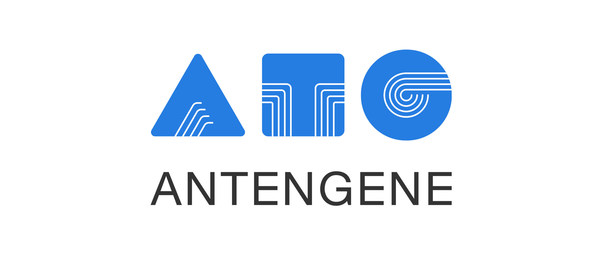 |
SHANGHAI and HONG KONG, Dec. 11, 2023 /PRNewswire/ -- Antengene Corporation Limited ("Antengene" SEHK: 6996.HK), a leading innovative, commercial-stage global biopharmaceutical company dedicated to discovering, developing and commercializing first-in-class and/or best-in-class medicines for cancer, today announced that the first patient has been dosed in the Phase I PERFORM trial of ATG-031 for the treatment of patients with advanced solid tumors or B-cell non-Hodgkin's lymphoma (B-NHL), at The University of Texas MD Anderson Cancer Center, the lead center of the study that also includes three other clinical trial centers across the U.S.
The PERFORM trial is a first-in-human, multi-center, open-label, Phase I dose-finding study of ATG-031 in patients with advanced solid tumors or B-NHL. The study's primary objective is to evaluate the safety and tolerability of ATG-031 as a monotherapy, and determine the appropriate dose for Phase II studies. The secondary objective is to characterize the pharmacology, evaluate the immunogenicity, and assess the preliminary efficacy of ATG-031.
"We are delighted that the PERFORM trial has successfully dosed its first patient in the U.S. CD24 is a target with great potential in regulating macrophage activities in tumor environment. Supported by the striking preclinical efficacy demonstrated by blocking CD24 in preclinical studies and a promising preclinical safety profile based on CD24's limited expression in normal tissue, Antengene has quickly initiated the PERFORM study in the U.S. to further assess the safety and tolerability of ATG-031 in late stage cancer patients," said Dr. Amily Zhang, Antengene's Chief Medical Officer. "Moving forward, we will continue to work closely with investigators at MD Anderson and three other clinical trial centers in the U.S. to bring clinical benefit to more patients as soon as possible."
"With the joint persistent efforts from Antengene's internal teams, we have made great strides to the development of ATG-031, a first-in-class anti-CD24 monoclonal antibody targeting the novel 'don't eat me' pathway, while making rapid progress with the clinical development of other core assets. To date, we have established close collaboration with more than 100 clinical trial centers in the U.S., Australia, and the Mainland of China," said Dr. Jay Mei, Antengene's Founder, Chairman and CEO. "Remaining committed to our global innovation strategies and steadily expediting our clinical programs, we will focus on next generation novel treatments to address broad unmet medical needs post the current immune checkpoint inhibitors."
About ATG-031
ATG-031 is a first-in-class humanized CD24 monoclonal antibody which inhibits the "don't eat me" signal and enhances macrophage-mediated phagocytosis of cancer cells. Tumor cells evade the surveillance of the human immune system by over-expressing "don't eat me" surface proteins that signal macrophages to prevent the detection and phagocytosis of cancer cells. CD24 (cluster of differentiation 24) is a prominent "don't eat me" signal that plays a significant role in tumor immune evasion by suppressing macrophage-mediated phagocytosis. Compared to CD47, another well-known "don't eat me" target, CD24 has a more restricted distribution in normal tissue and higher expression in cancerous tissue. In addition,unlike CD47,CD24 is not expressed on human red blood cells,allowing for a wider therapeutic window and minimal on-target-off-tumor toxicity as a CD24-targeted therapy.
As a novel innate immune checkpoint, CD24 orchestrates immune evasion through its interaction with the inhibitory receptor Siglec-10 (sialic-acid-binding Ig-like lectin 10) expresses on tumor-associated macrophages (TAMs). Preclinical data presented in 2023 at the American Association for Cancer Research Annual Meeting (AACR 2023) demonstrated that ATG-031 can specifically bind to CD24 with nM affinity and block the interaction of CD24 and Siglec-10. Furthermore, ATG-031 induces efficient phagocytosis with a picomolar EC50 and stimulates the pro-inflammatory cytokines production by macrophages.
About Antengene
Antengene Corporation Limited ("Antengene", SEHK: 6996.HK) is a leading commercial-stage R&D-driven global biopharmaceutical company focused on the discovery, development, manufacturing and commercialization of innovative first-in-class/best-in-class therapeutics for the treatment of hematologic malignancies and solid tumors, in realizing its vision of "Treating Patients Beyond Borders".
Since 2017, Antengene has built a pipeline of 9 oncology assets at various stages going from clinical to commercial, including 6 with global rights, and 3 with rights for the APAC region. To date, Antengene has obtained 29 investigational new drug (IND) approvals in the U.S. and Asia, and submitted 10 new drug applications (NDAs) in multiple Asia Pacific markets, with the NDA for XPOVIO® (selinexor) already approved in Mainland of China, Taiwan China, Hong Kong China, Macau China, South Korea, Singapore and Australia.
Forward-looking statements
The forward-looking statements made in this article relate only to the events or information as of the date on which the statements are made in this article. Except as required by law, we undertake no obligation to update or revise publicly any forward-looking statements, whether as a result of new information, future events or otherwise, after the date on which the statements are made or to reflect the occurrence of unanticipated events. You should read this article completely and with the understanding that our actual future results or performance may be materially different from what we expect. In this article, statements of, or references to, our intentions or those of any of our Directors or our Company are made as of the date of this article. Any of these intentions may alter in light of future development. For a further discussion of these and other factors that could cause future results to differ materially from any forward-looking statement, please see the other risks and uncertainties described in the Company's Annual Report for the year ended December 31, 2022, and the documents subsequently submitted to the Hong Kong Stock Exchange.